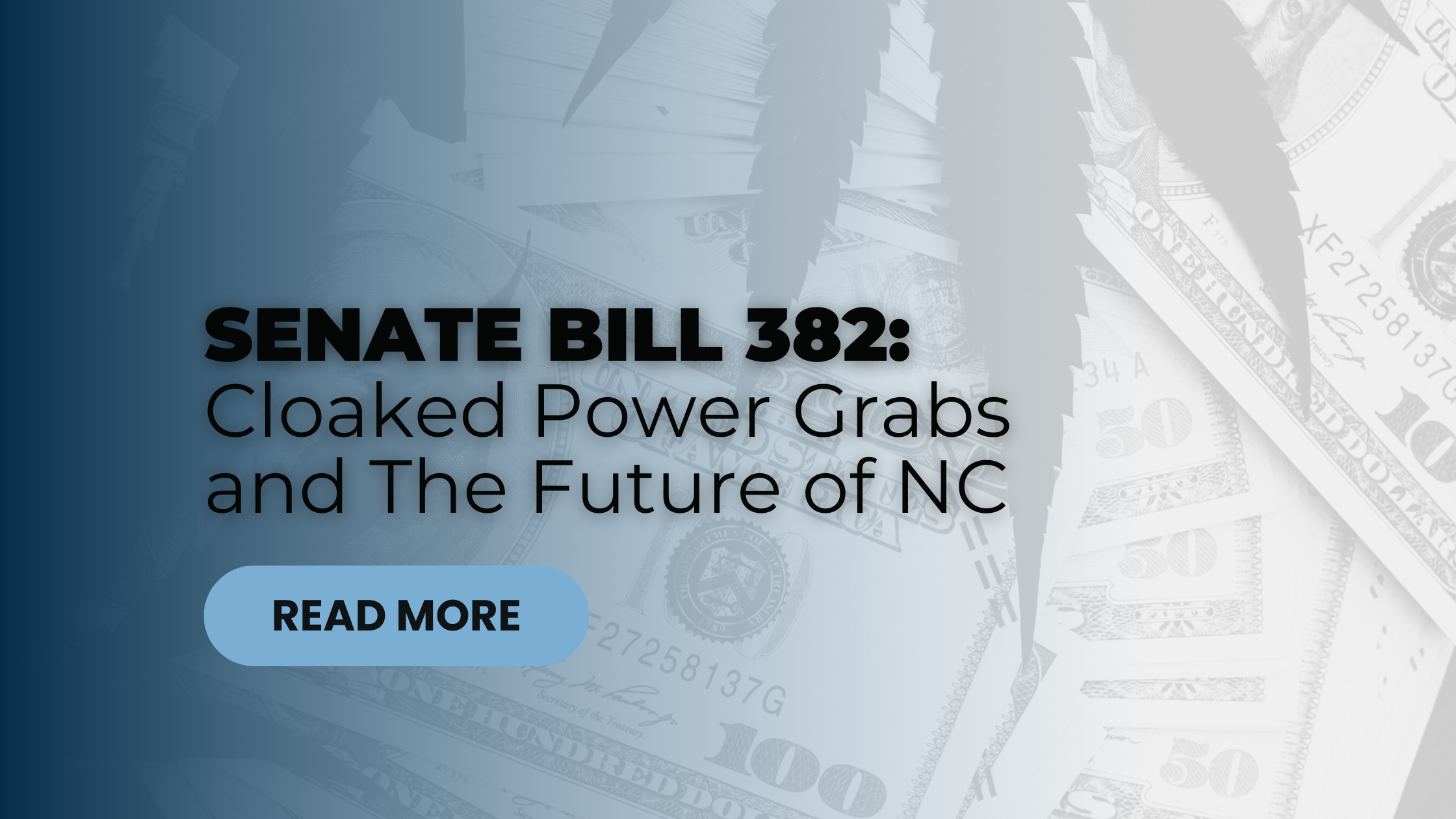
Senate Bill 382: Cloaked Power Grabs and the Future of NC
North Carolina politics has once again found itself at the center of a contentious debate on the balance of power. Last week, the Republican-led North Carolina Senate overrode Gov. Roy Cooper’s veto of Senate Bill 382. This controversial piece of legislation, presented under the guise of hurricane relief, is not what it seems. Instead of prioritizing disaster recovery, it takes unprecedented steps to shift executive authority away from the governor and attorney general, consolidating power within the state legislature.
This move has raised alarms among political analysts, legal scholars, and concerned residents across the state. The bill, rushed through without public debate or committee hearings, poses significant questions about the future of democracy in North Carolina.
A Thinly Veiled Power Grab
While Senate Bill 382 is framed as a hurricane relief measure, a closer look reveals its true intent—a sweeping reallocation of executive powers. If enacted, this bill would:
- Strip the governor of the authority to appoint members to the state election board, transferring that power to the state auditor instead.
- Limit the attorney general's ability to oppose legislative leaders in lawsuits or challenge state laws.
- Establish a precedent for reshaping how power is divided between the executive and legislative branches.
These provisions, combined, disproportionately affect Gov.-elect Josh Stein and incoming Attorney General Jeff Jackson, both Democrats, as North Carolina transitions to new leadership. The timing is impossible to ignore.
Eroding the Governor's Role
Comparison with Previous Legislation
This is not the first time Republican lawmakers in North Carolina have sought to curtail executive authority. Since 2016, following Gov. Roy Cooper's election, there has been a consistent push to limit gubernatorial powers. For example:
- A 2017 measure reduced the number of political appointees the governor could name to his administration.
- Multiple efforts have been made over the years to alter the composition and governance of the state election board.
Senate Bill 382 fits firmly within this pattern, raising concerns about whether these incremental moves are eroding the foundations of executive oversight in the state.
Reactions from Key Figures
Gov. Roy Cooper has not minced words regarding the bill. "This isn’t about hurricane relief," he said in a recent statement. "It’s about power—power to rig elections, undermine democracy, and strip away the checks and balances that protect our state."
Gov.-elect Josh Stein echoed similar concerns, emphasizing the bill’s potential impact on free and fair elections. "The people of North Carolina expect transparency, integrity, and accountability. This bill offers none of that." Attorney General Jeff Jackson, meanwhile, has voiced strong opposition regarding the restrictions placed on his office. "This obstructs our ability to fight for justice on behalf of North Carolinians," he said, pointing to how the bill handcuffs the Department of Justice in fighting questionable state laws.
Undermining Democracy in the Shadows
While the content of Senate Bill 382 is concerning, its passage process is equally troubling. The bill was expedited through the legislature without public hearings or scrutiny, raising questions about transparency. Democratic lawmakers and various advocacy groups have criticized this lack of input, calling it undemocratic.
Expert Opinions
Legal scholars have weighed in, questioning the constitutionality of portions of the bill. "What we’re seeing here is a violation of the checks and balances principle that is foundational to our democracy," says Dr. Angela Morris, a constitutional law expert at Duke University.
Others have cited the potential long-term effects this trend could have on governance in North Carolina. "If this battle over power continues unchecked, we risk diminishing voter trust and damaging the integrity of democratic institutions in the state," warns political scientist Dr. Brian Kendrick.
What’s at Stake?
The implications of Senate Bill 382 go far beyond the immediate shifts in power—it’s about the future of democracy in North Carolina. The checks and balances system is designed to prevent any one branch of government from wielding disproportionate control. By steadily weakening the governor's and attorney general's roles, these measures fundamentally alter how the state operates.
For residents of North Carolina, this means potential challenges for effective governance and fair elections. This concentration of legislative power could foster an environment where partisan interests take precedent over citizens’ needs.
Where Do We Go From Here?
The passage of Senate Bill 382 marks a critical juncture for North Carolina. The question is no longer just about this bill or this administration. It's about the precedent being set and the kind of government North Carolinians want for future generations.
To those concerned about the state of democracy in North Carolina, now is the time to act. Make your voice heard—speak to your representatives, educate your community, and advocate for transparency and fairness in governance.
Democracy is not guaranteed—it requires vigilance and action. It’s up to us all to protect it.
Stay informed on this story and others like it. Subscribe to our newsletter for breaking updates and insights into the fight for democracy in North Carolina.

